ROBERT HARE | ||
|
is an Emeritus Professor of Psychology, University of British
Columbia, where he has taught and conducted research for
some 35 years, and President of Darkstone Research Group
Ltd., a forensic research and consulting firm. He has
devoted most of his academic career to the investigation of
psychopathy, its nature, assessment, and implications for
mental health and criminal justice. He is the author of
several books, including Without Conscience: The Disturbing
World of the Psychopaths Among Us, and more than two hundred
chapters and scientific articles on psychopathy. He is the
developer of the Psychopathy Checklist-Revised (PCL-R).
He consults with law enforcement,
including the FBI and the RCMP, and is a member of the
Research Advisory Board of the FBI Child Abduction and
Serial Murder Investigative Resources Center (CASMIRC).
Find more at www.hare.org.
Among his most recent awards are the Silver Medal of the Queen Sophia Center in Spain; the Canadian Psychological Association Award for Distinguished Applications of Psychology; the American Academy of Forensic Psychology Award for Distinguished Applications to the Field of Forensic Psychology; the Isaac Ray Award presented by the American Psychiatric Association and the American Academy of Psychiatry and Law for Outstanding Contributions to Forensic Psychiatry and Psychiatric Jurisprudence. |
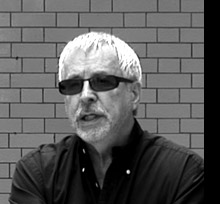 |
|
PAUL BABIAK | ||
|
is an Industrial and Organizational Psychologist. Paul coaches,
consults with, and trains business professionals on how to
spot and manage the corporate psychopath. He is the author
of Snakes in Suits: When Psychopaths Go to Work, with Robert
D. Hare, as well as many scientific articles and book
chapters, and is currently developing an assessment
instrument entitled the B-Scan for use in employee selection
and succession planning. Dr. Babiak has appeared on many
popular television and radio programs, and has been
interviewed by newspapers, business magazines and science
journals, including The New York Times Magazine which cited
his unique contributions to the study of corporate
psychopathy in the December 2004 "Year In Ideas" special
issue. He is vice president of the
Aftermath: Surviving
Psychopathy Foundation, created to advance research on, and
provide support for, victims of psychopathy.
|
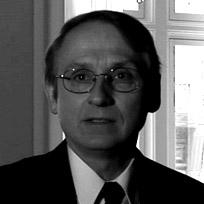 |
|
PHILIP ZIMBARDO | ||
|
is professor Emeritus at Stanford
University, where he has taught psychology for more than 40
years. He has received numerous awards and honors for his
research, teaching, media, and social service from many
professional organizations. Among his more than 400
publications are best-selling trade books, Shyness, The
Lucifer Effect, and The Time Paradox. He has been described
as the face and voice of modern psychology based on his
creation and narration of the PBS-TV 26- program series,
Discovering Psychology. His current mission is creating
everyday heroes around the world via an organization he
founded and is president of
www.HeroicImagination.org.
|
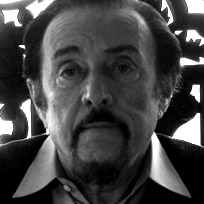 |
|
CHRISTOPHER LANE | ||
|
is the Pearce Miller Research Professor of Literature at
Northwestern University, Chicago, and a recent Guggenheim
fellow. A London-born literary critic and intellectual
historian, he teaches and writes about literature,
psychology, and psychiatry. His books include Shyness: How
Normal Behavior Became a Sickness (Yale University Press,
2007), winner of the 2010 Prescrire Prize for Medical
Writing (France) and translated into five other languages,
and The Age of Doubt: Tracing the Roots of Our Religious
Uncertainty (Yale University Press, March 2011). His work
has appeared in the New York Times, Washington Post, Los
Angeles Times, Boston Globe, and New Statesman and Society.
He writes a blog for Psychology Today called
Side Effects.
|
 |
|
GARY GREENBERG | ||
|
is a practicing psychotherapist in Connecticut and the
author of Manufacturing Depression and The Noble Lie. He has
written about the intersection of science, politics, and
ethics for many publications, including Harper's, the New
Yorker, Wired, Discover, Rolling Stone, and Mother Jones,
where he's a contributing writer.
|
 |
|
CHARLES BARBER | ||
|
is the author of COMFORTABLY NUMB: How Psychiatry is
Medicating a Nation, as well as the memoir SONGS FROM THE
BLACK CHAIR. He is a Lecturer in Psychiatry at the Yale
University School of Medicine and has worked for many years
in shelters and halfway houses for the homeless mentally ill
and former prisoners.
|
 |
|
JAMES FOWLER | ||
|
is a Professor in the School of Medicine and the Division of
Social Sciences at the University of California, San Diego.
He was recently named a Fellow of the John Simon Guggenheim
Foundation and one of Foreign Policy's Top 100 Global
Thinkers. James's work lies at the intersection of the
natural and social sciences. His primary areas of research
are social networks, behavioral economics, evolutionary game
theory, political participation, cooperation, and
genopolitics (the study of the genetic basis of political
behavior).
James has been interviewed by Stephen Colbert and was named "most original thinker" of the year by The McLaughlin Group. His research on genopolitics with Chris Dawes has been featured in New York Times Magazine'sYear in Ideas, and his research on social networks with Nicholas Christakis has been featured in Time's Year in Medicine (twice), and in Harvard Business Review's Breakthrough Business Ideas. |
 |
|
NICHOLAS A. CHRISTAKIS | ||
|
is an internist and social scientist who conducts research
on social factors that affect health, health care, and
longevity. He is Professor of Medical Sociology in the
Department of Health Care Policy at Harvard Medical School;
Professor of Medicine in the Department of Medicine at
Harvard Medical School; and Professor of Sociology in the
Department of Sociology in the Harvard Faculty of Arts and
Sciences. He is the Master of Pforzheimer House in Harvard
College.
His current research focuses on health and social networks, and especially with how ill health, disability, health behavior, health care, and death in one person can influence the same phenomena in others in a person's social network. In 2009, Christakis was named by Time magazine to their annual list of the 100 most influential people in the world. In 2009 and in 2010, he was listed by Foreign Policy magazine in their annual list of Top 100 Global Thinkers. |
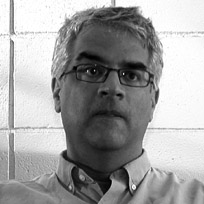 |
|
VACLAV HAVEL | ||
|
is a Czech playwright, essayist, poet, dissident and
politician. He was the tenth and last President of
Czechoslovakia (1989-92) and the first President of the
Czech Republic (1993-2003) He has written over twenty plays
and numerous non-fiction works, translated internationally.
He has received the US Presidential Medal of Freedom, the
Philadelphia Liberty Medal, the Order of Canada, the freedom
medal of the Four Freedoms Award, and the Ambassador of
Conscience Award. He was also voted 4th in Prospect
Magazine's 2005 global poll of the world's top 100
intellectuals. He is a founding signatory of the Prague
Declaration on European Conscience and Communism.
|
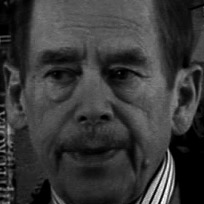 |
|
BYRON WOOLLEN | ||
|
is the founder and Managing Partner of Podia Consulting
based in New York City. Podia is a firm that specializes in
change management, leadership consultation and advising
leaders on organizational effectiveness
|
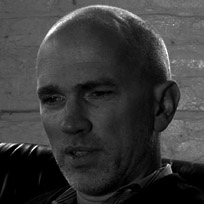 |
|
JOHN PERRY BARLOW | ||
|
is an American poet and essayist, a retired Wyoming cattle
rancher, and a cyberlibertarian political activist who
has been associated with both the Democratic and Republican
parties. He is also a former lyricist for the Grateful Dead
and a founding member of the Electronic Frontier Foundation.
Since May 1998, he has been a Fellow at Harvard University's
Berkman Center for Internet and Society.
Mr. Barlow (born October 3, 1947) has extensive experience in developing nations, having personally connected 10 African countries to the internet. He was called "One of the 25 Most Influential People in Financial Services" by FutureBanker Magazine, "The Thomas Jefferson of Cyberspace" by Yahoo Internet Life, and a "Cyberspace Cadet" by the Wall Street Journal, which is fitting since he is credited with having coined the phrase "cyberspace". |
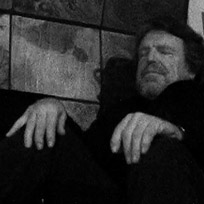 |